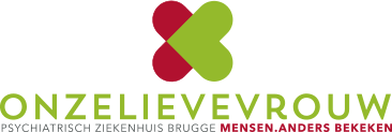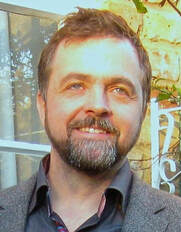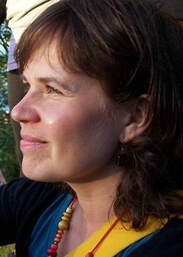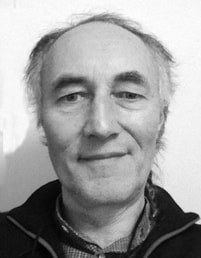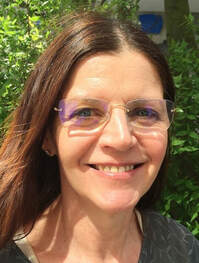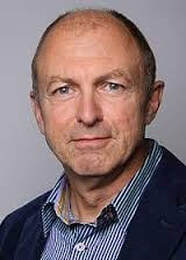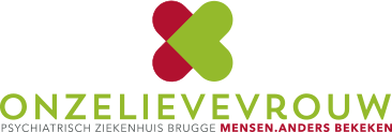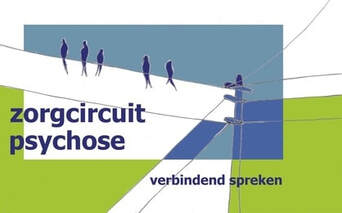Open Dialogue foundation training
Open Dialogue foundation training 2021
Open Dialogue inoefenen en toepassen
Psychiatrisch Ziekenhuis Onzelievevrouw & Psychiatrisch Centrum Sint-Amandus
organiseren een eerste Open Dialogue foundation training in Vlaanderen en België
20 dagen
januari - oktober 2021
Brugge & Beernem
voor alle informatie en inschrijving:
FOLDER 'OPEN DIALOGUE FOUNDATION TRAINING'
te lezen via de knop hieronder:
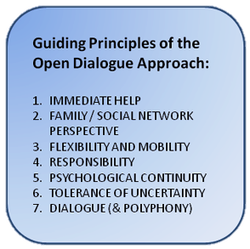
meer achtergrondinformatie rond Open Dialogue op deze pagina:
http://www.verbindendsprekenmetpsychose.com/open-dialogue-achtergrond.html
PRAKTISCH
Data (20 dagen), trainers en plaats
Door de corona-maatregelen werd de start van de opleiding uitgesteld naar 18 maart 2021.
De deelnemers krijgen een aangepast planningsoverzicht.
Blok 1: 7-8 januari 2021 (2 dagen)
Nick Putman & Anni Haase
- 07/01: in PZ Onzelievevrouw
- 08/01: in PC Sint-Amandus
Blok 2: 3-5 februari 2021 (3 dagen)
Nick Putman, Anni Haase & Richard Armitage
in PZ Onzelievevrouw
Blok 3: 17-19 maart 2021 (3 dagen)
Nick Putman, Anni Haase & Richard Armitage
in PC Sint-Amandus
Blok 4: 28-30 april 2021 (3 dagen)
Nick Putman, Volkmar Aderhold & Petra Hohn
in PZ Onzelievevrouw
Blok 5: 16-18 juni 2021 (3 dagen)
Nick Putman, Volkmar Aderhold & Petra Hohn
in PC Sint-Amandus
Blok 6: 1-3 september 2021 (3 dagen)
Nick Putman, Anni Haase & Richard Armitage
in PZ Onzelievevrouw
Blok 7: 20-22 oktober 2021 (3 dagen)
Nick Putman, Volkmar Aderhold & Petra Hohn
in PC Sint-Amandus
Kostprijs: € 3.900 per deelnemer
Deze basistraining werkt uitsluitend met ervaren Open Dialogue expert-trainers. Zij werken conform internationale tarieven.
Een subsidieaanvraag bij de FOD Volksgezondheid is lopende. Bij toezegging ervan kan de inschrijfkost nog dalen.
De kostprijs is inclusief catering.
Indien de opleiding wegens de coronapandemie niet of niet volledig kan doorgaan, dan is een vaste kost van € 400 per deelnemer niet terugvorderbaar, samen met de kost van onderdelen die wel hebben plaatsgevonden. Hoe dan ook zullen alle inspanningen gedaan worden om eventueel geannuleerde onderdelen op latere datum te herplannen.
Attest
Minimaal 80% aanwezigheid is vereist.
Meer Info
Christine Van Damme, PZ Onzelievevrouw Brugge
[email protected]
050 30 18 24
Dag Van Wetter, PC Sint-Amandus Beernem - Steunpunt Geestelijke Gezondheid
[email protected]
0465 07 15 69
VOORSTELLING VAN DE TRAINERS
NICK PUTMAN
Nick Putman is a registered psychotherapist and a certified Open Dialogue practitioner and trainer, having completed a two year training in the Open Dialogue approach with Mary Olson and others in the US and a three year trainer’s training programme in London with Jaakko Seikkula and others. He is the founder of Open Dialogue UK, which established the first full training in the Open Dialogue approach outside of Western Lapland. Nick has visited the Open Dialogue service in Western Lapland on a number of occasions to study the approach and the structure of the service.
He has more than 20 years experience working in a variety of mental health settings, and considerable experience working with people experiencing psychosis and their families. Nick is currently working with families in London, along with colleagues, both at the Open Dialogue UK premises and at home visits.
He has more than 20 years experience working in a variety of mental health settings, and considerable experience working with people experiencing psychosis and their families. Nick is currently working with families in London, along with colleagues, both at the Open Dialogue UK premises and at home visits.
ANNI HAASE
Anni Haase is a psychologist, psychotherapist and Open Dialogue practitioner and trainer. Currently she works at Keropudas outpatient services in Western Lapland, Finland, where Open Dialogue in psychiatry was born. Anni works with families and social networks but also practices individual psychotherapy in the spirit of a need adapted approach. She is also leading a training for peer workers with her colleagues and participates in a supervision group for peer workers. Anni gives individual supervision to workers at Keropudas Hospital.
Previously Anni worked as an occupational psychologist in Rovaniemi and Tornio (2000-2004). Before Keropudas she worked as a psychologist in a family counselling centre in Tornio (2004-2010), which was strongly influenced by Open Dialogue trainings in the region. Anni has completed psychology teacher's pedagogical studies (2005), and has specialised in family counselling (2007) and sensorimotor trauma therapy (2010).
Anni is very interested in combining body oriented approaches to therapeutic work. In therapy processes and in network meetings Anni is focused on the embodiment of experience and pays close attention to subtle sensations and transformations in emotions, thoughts, movements and perceptions in those engaged in the meetings.
Anni has participated as a trainer in several trainings internationally including trainings run in Australia, the UK and the US.
Previously Anni worked as an occupational psychologist in Rovaniemi and Tornio (2000-2004). Before Keropudas she worked as a psychologist in a family counselling centre in Tornio (2004-2010), which was strongly influenced by Open Dialogue trainings in the region. Anni has completed psychology teacher's pedagogical studies (2005), and has specialised in family counselling (2007) and sensorimotor trauma therapy (2010).
Anni is very interested in combining body oriented approaches to therapeutic work. In therapy processes and in network meetings Anni is focused on the embodiment of experience and pays close attention to subtle sensations and transformations in emotions, thoughts, movements and perceptions in those engaged in the meetings.
Anni has participated as a trainer in several trainings internationally including trainings run in Australia, the UK and the US.
RICHARD ARMITAGE
Richard Armitage is a dialogical practitioner and trainer in Denmark at a large centre for supported living and rehabilitation. Here he works both with the staff and with the residents, who are adults with a long history as users of psychiatric and substance abuse services.
Prior to this he has worked as a clinical psychologist in psychiatric services in various settings – in outgoing ambulant services and on both open and closed wards. The focus in all of these settings has been the development of a dialogical practice – training, organisational development and reflective, relational work in the users networks.
Originally trained as a psychologist and systemic family therapist, Richard began to work with Open Dialogue in 2005 while training in a Relational and network approach with Tom Andersen in Tromsø. Jaakko Seikkula was one of the primary teachers during these two years, and Richard has maintained his involvement with this work since. In addition to his own work in services he has been continually involved as a supervisor, teacher and trainer in other services, organisations and formal educational programs around the country. In 2015 he was also a trainer and supervisor in a national Open Dialogue development project in Italy. He has also participated as a trainer on Open Dialogue trainings run in the UK and Australia.
Prior to this he has worked as a clinical psychologist in psychiatric services in various settings – in outgoing ambulant services and on both open and closed wards. The focus in all of these settings has been the development of a dialogical practice – training, organisational development and reflective, relational work in the users networks.
Originally trained as a psychologist and systemic family therapist, Richard began to work with Open Dialogue in 2005 while training in a Relational and network approach with Tom Andersen in Tromsø. Jaakko Seikkula was one of the primary teachers during these two years, and Richard has maintained his involvement with this work since. In addition to his own work in services he has been continually involved as a supervisor, teacher and trainer in other services, organisations and formal educational programs around the country. In 2015 he was also a trainer and supervisor in a national Open Dialogue development project in Italy. He has also participated as a trainer on Open Dialogue trainings run in the UK and Australia.
PETRA HOHN
Petra Hohn is a registered nurse and network therapist, and has a masters for teaching in health services. She has been working since 1993 in different psychiatric services for outpatient and inpatient care, first at Kriscenter Soteria (1993-1997), an integrated model of care for people experiencing first break psychosis. Kriscenter Soteria was part of the Swedish Parachute Study. From 1997 to 2001 Petra worked as the head of outpatient centres, first in Södertälje Psychiatric Sector with integrated NIP (Newly Identified Psychosis) teams and integrated teams for social work and psychiatric treatment according to need adapted principles.
Petra is presently working at Psychiatry South Stockholm as the head of an outpatient unit, and is also running training programmes for the organisation’s employees, e.g. “Psychiatry in a historical, social and political context”, as well as seminars on personality disorders and supervision.
Petra has been developing and running training programmes in Need Adapted Treatment Model and Open Dialogue since 2008. Since 2013 these trainings have been delivered for the Parachute Project in New York City and also as a Foundation Training for Open Dialogue UK. Petra’s interest in working dialogically in healthcare settings started with her job at Kriscenter Soteria. Cornerstones of practice were the implicit attention given to clients and their family’s words and language, the acknowledgement that every human being is born into relationships, embedded in them, and that we as human beings are and need to be dependent on fellow humans. To be human and to become who we are, we need the answer of others. Others need to see, hear and respond to our being in the world. Dialogue as such is the foundation of our lives and we as species can’t survive without being a part of the social web of our relational and intersubjective existence.
Petra is presently working at Psychiatry South Stockholm as the head of an outpatient unit, and is also running training programmes for the organisation’s employees, e.g. “Psychiatry in a historical, social and political context”, as well as seminars on personality disorders and supervision.
Petra has been developing and running training programmes in Need Adapted Treatment Model and Open Dialogue since 2008. Since 2013 these trainings have been delivered for the Parachute Project in New York City and also as a Foundation Training for Open Dialogue UK. Petra’s interest in working dialogically in healthcare settings started with her job at Kriscenter Soteria. Cornerstones of practice were the implicit attention given to clients and their family’s words and language, the acknowledgement that every human being is born into relationships, embedded in them, and that we as human beings are and need to be dependent on fellow humans. To be human and to become who we are, we need the answer of others. Others need to see, hear and respond to our being in the world. Dialogue as such is the foundation of our lives and we as species can’t survive without being a part of the social web of our relational and intersubjective existence.
VOLKMAR ADERHOLD
Volkmar Aderhold is a Psychiatrist and Psychotherapist with a Doctorate in Human Medicine, and is internationally recognised for his contributions to the field of psychiatry. His expertise has been developed through lengthy experience as a clinical director, active researcher, lecturer and publisher. He worked as a senior consultant in the University Clinic for Psychiatry and Psychotherapy in Hamburg for 10 years. There his accomplishments included working on a new project for people with difficult to treat psychosis including individual and group therapy practices. He was among the first to be involved with voice hearers in Germany. Together with engaged teams he also started to implement more and more elements of the Need Adapted Treatment Model and Open Dialogue practices on an acute ward for people with psychotic experiences.
Volkmar led the first project in Germany to implement the Need Adapted Treatment Model and Open Dialogue practices. Over the past 8 years he has developed a variety of in-house training programmes for the practice of Open Dialogue for multi- professional teams, often including peers (in total more than 30 training programmes). He has run these trainings along with many other senior therapists across 17 districts in Germany, and variations on the programme have been run in the USA (The Parachute Project), Switzerland and Poland.
Volkmar is inspired to develop humane approaches to people experiencing severe distress, following the principles of the peer and recovery movement, within an integrated practice. He writes: “I love to run these trainings, to see the impact on professionals, and their capacity to create a frame for a process in which clients can overcome their sense of alienation, as well as find their individuality and their own meaning for extreme experiences. The mutual process of reconciliation and individualisation can be astounding while the actual dialogical practice is so subtle. I greatly appreciate the values that are at the heart of this approach, such as respect, growth, and a more socially inclusive way of life.”
Volkmar led the first project in Germany to implement the Need Adapted Treatment Model and Open Dialogue practices. Over the past 8 years he has developed a variety of in-house training programmes for the practice of Open Dialogue for multi- professional teams, often including peers (in total more than 30 training programmes). He has run these trainings along with many other senior therapists across 17 districts in Germany, and variations on the programme have been run in the USA (The Parachute Project), Switzerland and Poland.
Volkmar is inspired to develop humane approaches to people experiencing severe distress, following the principles of the peer and recovery movement, within an integrated practice. He writes: “I love to run these trainings, to see the impact on professionals, and their capacity to create a frame for a process in which clients can overcome their sense of alienation, as well as find their individuality and their own meaning for extreme experiences. The mutual process of reconciliation and individualisation can be astounding while the actual dialogical practice is so subtle. I greatly appreciate the values that are at the heart of this approach, such as respect, growth, and a more socially inclusive way of life.”
ORGANISATIE
Psychiatrisch Centrum Sint-Amandus, Beernem
en
Psychiatrisch Ziekenhuis Onzelievevrouw, Brugge
organiseren samen deze ‘Open Dialogue foundation training’.
